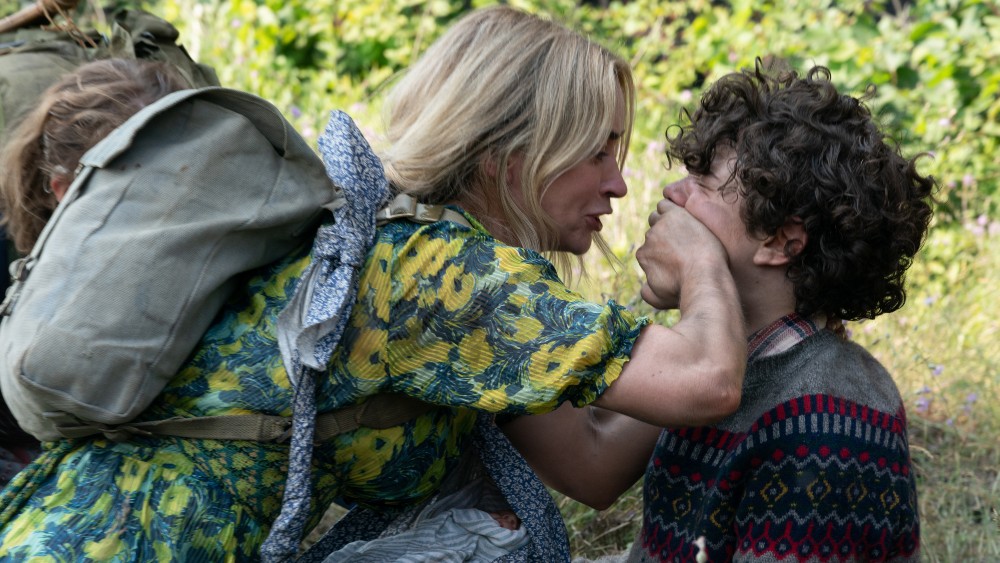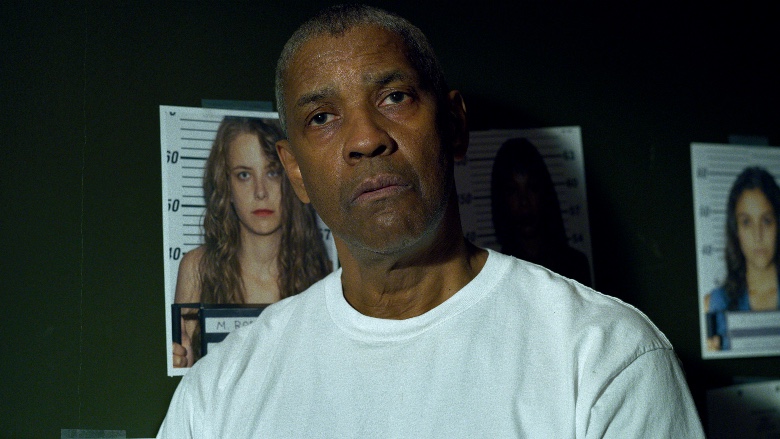
Some months back, when Paramount Pictures announced that it was going to shorten the theatrical window for its movies, starting with A Quiet Place, Part II, there was something interesting buried in about the ninth paragraph of a ten-paragraph story. It made me sit up in my chair a little, and I made a note that this was something to which I wanted to return and possibly discuss further in this space.
The thing that was sort of buried was the fact that the movie’s star, Emily Blunt, and her co-star and director, John Krasinski, were both furious about the fact that the allotted time between theatrical and VOD release was shortened to 45 days. The fact that the pair are husband and wife is less important to the story than that they are two very big hitters in the Hollywood Place, and if they’re pissed about it, then assuredly a lot of other people are, too. And I’m not just talking about their reps.
“Why would they be so upset about this?” You may ask. “Neil, what’s the difference if the movie has a 90-day window or one half as long? Why would a couple megastars like these two care one way or another about something that seems pretty innocuous?”
So glad you asked. Thing is, the deals they have with Paramount involve back-end payments as a reward for the movie’s box office performance. Shorten the window in which people have to see the movie in a theater, lessen the opportunity to make more money at the box office. It would be one thing if the movie was then moving to pay-per-view, or Amazon or Apple TV, or any number of other streaming options, where people can rent it and the numbers continue to rise. But if it’s going to Paramount+, CBSViacom’s in-house platform, that nullifies any such opportunity, and takes money out of the pockets of Mr. and Mrs. Krasinski, as well as any number of other Big Stars who have similar deals.
Now, I can sense that you might be having a hard time feeling some empathy for a couple of celebrities who are worth a lot more money than you are, but there’s actually a bigger picture here that directly affects just about everyone in the industry. Aside from the moral issue of a company negotiating in bad faith — something Paramount clearly did here, even if there is a certain force majeure involved, in the form of a global pandemic — there’s also the matter of residuals.
It’s part of any SAG-AFTRA deal with any filmed project. A movie plays in a theater, an actor may or may not get a piece of the box office. Probably not, unless said actor is a Big Star, but it’s a possibility. The real money comes in residuals, the payments actors get for airings on VOD, television, in syndication, airplanes, streaming, or any other place where a person might consume such content. If a distributor changes the streaming platform plan midstream, that’s a lot of potential earnings that go bye-bye.
Which means that the big winner in this scenario is the giant corporation that owns the studio and the platform and thus has to pay less than it had planned to pay, because it changed the rules in the middle of the game. Yay, Corporation!

This, incidentally, is not an isolated case. Warner Bros. announced last year that its entire 2021 slate was going to premiere on HBO Max, and Denzel Washington’s reaction was similar to the Krasinskis’. His movie The Little Things hit the streaming waves in January, the same day it hit a limited number of theaters. Denzel doesn’t get out of bed for less than eight figures, which is usually put forth as an advance on that coveted first dollar back-end. But if there’s no back-end, there’s no more impending income, and an actor who might have taken more of a salary up front is screwed, because he was counting on his name recognition and star power putting butts in seats. Suddenly, the chance to prove that vanishes.
A few years back, Netflix made a big play for a Will Smith film called Bright. It was written by Max Landis, had David Ayers on to direct and Joel Edgerton as a co-star. The package was shopped around with a $45 million price tag for everyone involved, including the actual shooting budget. Netflix swooped in and bought it for twice that amount, giving itself a headlining tentpole of a movie, while also buying out everyone’s back-end in the process. That is a proper deal, with everything out front and above board. Netflix sort of has to play it this way, as any theatrical option it offers is for limited, and solely for awards movies (and, at that time, was non-existent). You get into business with Netflix, you know where it’s going to be showing. You do it with a studio, maybe all of a sudden you’re not quite as sure.
Interestingly, a similar issue arises with TV networks moving shows from broadcast to their in-house service. Numbers of airings, reruns, syndication, all of it changes with this kind of shift. Broadcast television is, like the theatrical movie experience, changing drastically. Viewership is splintered to an irreparable level. Seinfeld’s final season, in 1997-98, brought in 35 million viewers per episode. These days, not even the NFL’s Football Night in America draws as many as half that. No broadcast show — hell, no show of any kind — is going to see numbers that high again, but that doesn’t mean there isn’t plenty of money to go around. The model has changed, sure, but platforms have a ton of subscription money to spend (and sometimes advertising dough on top of it, depending on what the viewer pays for). They’re just finding new ways to not spend it.
This is all filtering down below the line, too. IATSE, the union for stage and craftworkers, is in the process of negotiating a new deal with the Alliance of Motion Picture & Television Producers, and a key component of the deal is streaming residuals. Residuals, mind you, that are becoming a larger and larger percentage of whatever payouts the Producers are offering, even if that number continues to be lower than it should be. The fact that this is on the table, at least, means that the people who make the content are being open about everything. That’s a good first step, but until some kind of uniformity exists, it still feels a lot like the Wild West out there.
I’m not sure, ultimately, where this leads, but I know that the landscape is going to continue to change. I also know that there’s no way everyone is going to be happy about it.
 Neil Turitz is a journalist, essayist, author, and filmmaker who has worked in and written about Hollywood for nearly 25 years, though he has never lived there. These days, he splits his time between New York City and the Berkshires. He’s not on Twitter, but you can find him on Instagram @6wordreviews.
Neil Turitz is a journalist, essayist, author, and filmmaker who has worked in and written about Hollywood for nearly 25 years, though he has never lived there. These days, he splits his time between New York City and the Berkshires. He’s not on Twitter, but you can find him on Instagram @6wordreviews.
You can read a new installation of The Accidental Turitz every Wednesday.





